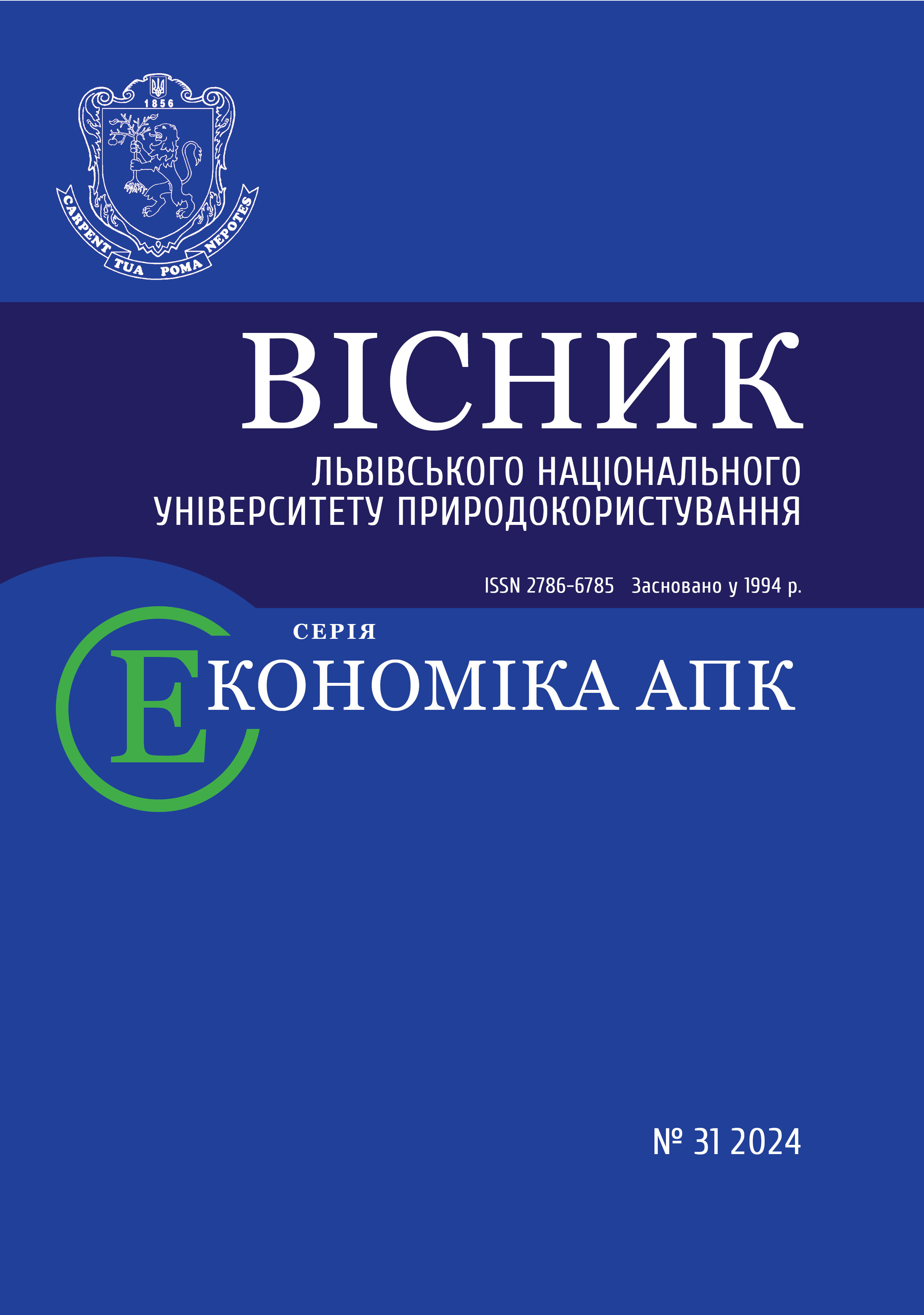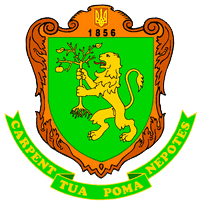THE ROLE AND PLACE OF A TERRITORIAL COMMUNITY IN THE SYSTEM OF LOCAL SELF-GOVERNMENT OF UKRAINE
DOI:
https://doi.org/10.31734/economics2024.31.024Keywords:
executive power authorities, territorial community, management, local self-government, public authorityAbstract
The article examines the phenomenon of a territorial community in the context of the public authority system of Ukraine. The author reveals the essence of the concept of a territorial community and investigates the key aspects of its formation and functioning in the current conditions of state-building in Ukraine. The basic concepts of defining the essence of a territorial community are considered, and it is established that it is a fundamental subject of local self-government which has the authority and responsibility for resolving issues of local importance. The author identifies the constituent elements of local self-government bodies in Ukraine.
Attention is focused on the role of territorial communities in Ukrainian local self-government. It is emphasized that the territorial community is the primary subject of local self-government, which has its authority and carries out its functions based on the principles of democracy and self-government.
The author provides definitions that state that a territorial community is a self-governing social unit that is formed and functions based on the common interests and needs of its residents. The proper functioning of territorial communities is the basis for building civil society and the rule of law in Ukraine.
The purpose is to study the territorial community as a fundamental element of the local self-government system in Ukraine. To identify and analyze the peculiarities of the functioning of territorial communities in the system of public authorities at the present stage of state-building. The study focuses on defining territorial communities' role, status in the local government system, and impact on public administration processes.
The study focuses on the analysis of the constituent parts of territorial communities, such as authorities, public organizations, and other elements involved in the process of public administration, as well as how these elements interact and influence each other, how they form the system of public administration at the local level. The study of the socio-territorial nature and public legal status of a territorial community allows for defining it as a unique primary collective subject of local self-government. It has the right guaranteed by the state to independently resolve issues of local importance in various forms, following the Constitution and laws of Ukraine, based on its own material and financial basis.
The study emphasizes that the reform of local self-government is the main effective force for the successful implementation of decentralization in the state, and therefore a deep understanding of the principles of functioning of territorial communities is equally important for the successful implementation of changes.
References
Babaiev V. M. Management of a large city: theoretical and applied aspects: a monograph. Kharkiv: Kharkiv National Academy of Municipal Economy, 2010. 306 p.
Batanov O. V. Territorial community – the primary subject of municipal power in Ukraine: concept and features. Bulletin of the Central Election Commission. 2008. No 2. P. 51–57.
Bilukha L. A. The concept of a territorial community and a capable territorial community. Theory and practice of public administration. 2017. No 1 (56). P. 1–6.
Bilyk P. P. Problems of the definition of territorial community as a sign of the legal essence of “region”. Bulletin of Odesa Institute of Internal Affairs. 2001. No 1. P. 144–149.
Chapala H. V. Local self-government in the system of public power: dissertation for the degree of Candidate of Law: 12.00.01. Kharkiv, 2004. 214 р.
Constitution of Ukraine: adopted at the fifth session of the Verkhovna Rada of Ukraine on June 28, 1996. URL: http://zakon.rada.gov.ua (Accessed May 24, 2024).
Drobot I. O. Guaranteeing local self-government in Ukraine: theoretical and methodological aspects: monograph. Lviv: LRIDU NAPA, 2010. 312 p.
European Charter of Local Self-Government. Strasbourg, October 15, 1985. The Charter was ratified by Law No 452/97-VR of July 15, 1997. 1997. URL: http://zakon1.rada.gov.ua/laws/show/994_036 (Accessed May 24, 2024).
European standards of local democracy and local self-government in Ukraine. Kharkiv, 2000. P. 8.
Heida O.V. Types of territorial communities in Ukraine and features of their legal status: general characteristics. European Perspectives. 2012. No 3 (3). P. 9–13.
Law of Ukraine «On Local Self-Government in Ukraine» No 280/97 of May 21. 1997. No 24. Art. 170.
Lyska O. H. Territorial community. Encyclopedia of Public Administration: in 8 vols: Y. Kovbasiuk (Chairman) and others; National Academy of Public Administration under the President of Ukraine. Vol. 5: Territorial management / scientific and editorial board: O. Amosov (co-chairman), O. Ihnatenko (co-chairman) and others; edited by O. Amosov, O. Ihnatenko, A. Kuznetsov. Kharkiv: Harri NAPA “Master” Publishing House, 2011. P. 378.
On Approval of the Concept of Reforming Local Self-Government and Territorial Organization of Power in Ukraine: Resolution of the Cabinet of Ministers of Ukraine of April 1, 2014. No 333-p. URL: http://zakon4.rada.gov.ua/laws/show/333-2014-%D1%80 (Accessed May 24, 2024).
Orzikh M. P. The concept of the legal status of self-governing territories and local self-government bodies. Local and regional self-government of Ukraine. Kyiv, 1995. Issue 1–2 (10–11). Р. 67.
Territorial community: knowledge, effectiveness: monograph / Y. O. Kuts, V. M. Sinchenko, V. V. Mamonova and others; edited by Y. O. Kuts. Kharkiv: Virovets A. P.; Apostrophe, 2011. 340 р.


